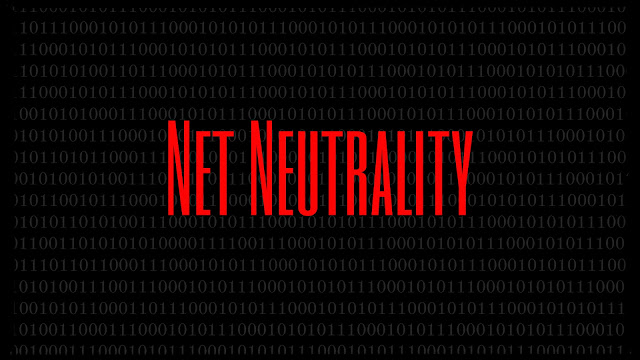Net Neutrality, On which side you are?
Net neutrality is the principle that individuals
should be free to access all content and applications equally, regardless of
the source, without Internet Service Providers discriminating against specific
online services or websites. In other words, it is the principle that the company that connects you to the
internet does not get to control what you do on the internet.
Without net neutrality rules in place,
ISPs like Verizon and Comcast can prevent users from visiting some websites,
provide slower speeds for services like Netflix and Hulu, or even redirect
users from one website to a competing website. Net neutrality rules prevent
this by requiring ISPs to connect users to all lawful content on the internet
equally, without giving preferential treatment to certain sites or services.
When you go online you have certain
expectations. You expect to be connected to whatever website you want. You
expect that your cable or phone company isn’t messing with the data and is
connecting you to all websites, applications and content you choose. You expect
to be in control of your internet experience.
In the absence of net neutrality,
companies can buy priority access to ISP customers. Larger, wealthier companies
like Google or Facebook can pay ISPs to provide faster, more reliable access to
their websites than to potential competitors. This could deter innovative
start-up services that are unable to purchase priority access from the ISPs. An
ISP could slow down its competitors’ content or block political opinions it
disagreed with. Also, if ISPs can charge online services to connect to
consumers, consumers would ultimately bear these additional costs (for example,
on their monthly Netflix bill or in the cost of products from a local online
store). Relegating everyone else to a slower tier of service. This would
destroy the open internet. Sounds shitty right? Well, it is!!
Net Neutrality is the internet’s guiding
principle: It preserves our right to communicate freely online. It means
an internet that enables and protects free speech. It means that ISPs should provide
us with open networks and shouldn’t block or discriminate against any
applications or content that ride over those networks. Just as your phone
company shouldn’t decide who you call and what you say on that call, your ISP
shouldn’t interfere with the content you view or post online.
What will happen if we lose?
Without Net Neutrality, how would
activists be able to fight against oppression? What would happen to social
movements like the Movement for Black Lives? How would the next disruptive
technology, business or company emerge if internet service providers only let
incumbents succeed?
This would have an enormous impact.
Companies like AT&T, Comcast and Verizon would be able to decide who is
heard and who isn’t. They’d be able to block websites or content they don’t
like or applications that compete with their own offerings.
The world would become a closed-down
network where cable and phone companies call the shots and decide which
websites, content or applications succeed.
Why is
Net Neutrality crucial for communities of color?
The open internet allows people of color to
tell their own stories and organize for racial and social justice. When
activists are able to turn out thousands of people in the streets at a moment’s
notice, it’s because ISPs aren’t allowed to block their messages or websites.
The mainstream media have long misrepresented, ignored
and harmed people of color. And thanks to systemic racism, economic inequality
and runaway media consolidation, people of color own just a handful of broadcast
stations. The lack of diverse ownership is a primary reason why the media have
gotten away with criminalizing and otherwise stereotyping communities of color.
The open internet allows people of color and other
vulnerable communities to bypass traditional media gatekeepers. Without Net
Neutrality, ISPs could block speech and prevent dissident voices from speaking
freely online. Without Net Neutrality, people of color would lose a vital
platform.
And without Net Neutrality, millions of small businesses
owned by people of color wouldn’t be able to compete against larger
corporations online, which would deepen economic disparities.
Why is Net Neutrality
important for businesses?
Net Neutrality is crucial for small business owners, startups
and entrepreneurs, who rely on the open internet to launch their businesses,
create markets, advertise their products and services, and reach customers. We
need the open internet to foster job growth, competition and innovation.
Net
Neutrality lowers the barriers of entry by preserving the internet’s fair and
level playing field. It’s because of Net Neutrality that small businesses and
entrepreneurs have been able to thrive online,.
No
company should be allowed to interfere with this open marketplace. ISPs are the
internet’s gatekeepers, and without Net Neutrality, they would seize every
possible opportunity to profit from that gatekeeper position.
Without
Net Neutrality, the next Google or Facebook would never get off the ground.
What can we do now?
Millions have already taken a stand to defend our rights to connect and communicate. Take action now and join the fight.






Comments
Post a Comment